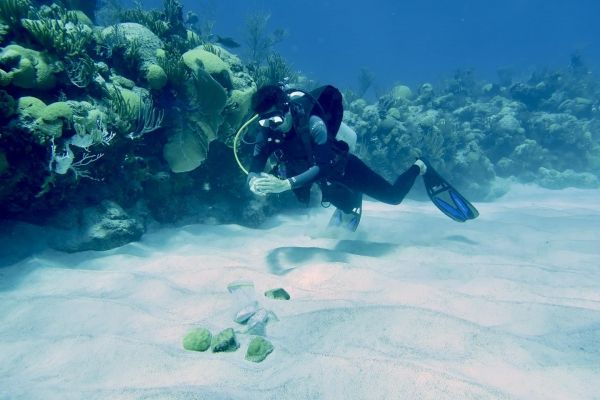Adult corals that survive high-intensity environmental stresses, such as bleaching events, can produce offspring that are better suited to survive in new environments. These results from a series of experiments conducted at BIOS in 2017 and 2018 are deepening scientists’ understanding of how the gradual increase of sea surface temperatures and other environmental disturbances may influence future coral generations.
Researchers on the project included BIOS marine ecologists Samantha de Putron and Gretchen Goodbody-Gringley (now with the Central Caribbean Marine Institute), ecophysiologist Hollie Putnam at the University of Rhode Island (URI), and Kevin Wong, then a first-year doctoral student at URI. Primary funding came from the Heising-Simons Foundation International, Ltd. with additional funding from the National Geographic Society and the Canadian Associates of BIOS (CABIOS).
The team spent last year working the data into a manuscript, which was published this month in the journal Global Change Biology and listed Wong as the first author. Wong, now nearing the end of his fourth year of studies at URI under the mentorship of Putnam, plans to graduate in May 2022.
“We know parental history influences the characteristics of offspring in corals, however the experimental design used in this study provides us with a unique perspective on how multiple types of thermal events can accumulate over time and have lasting consequences across generations,” Wong said.
Read more at Bermuda Institute of Ocean Sciences
Image: A recent publication in the journal Global Change Biology documents the results of two years of experiments conducted at BIOS by a team of researchers including Kevin Wong (shown here), a doctoral student at the University of Rhode Island. The results of the experiments provide insight into coral resilience, demonstrating that adult corals that survive high-intensity environmental stresses can produce offspring better suited to survive in new environments. (Credit: Kevin Wong)


